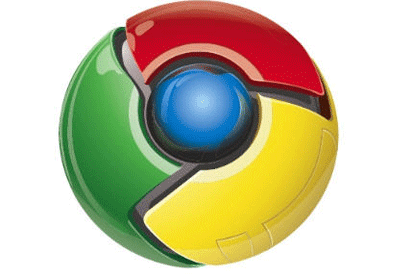
The launch of Google's new operating system, Google OS, is a typically ballsy move by the Mountain View crew - it's a direct stab at Microsoft and a claim for the very heart of user experience. Its still early days, with the ink hardly dry on the , but already questions are arising: what does it mean for the user, what does it mean for the marketplace and what does it mean for marketers?
1) Is it all about the user? If Google continues to follow its principles, and there's no sign that it won't, the Google OS is going to be all about the user. There's no question that its going to revolutionise users' experience of the desktop - it'll be clutter-free, fast, sharp and focused with a range of apps that do simple things well. Like Apple, Googlet really understands human-computer interfaces so its first OS is unlikely to disappoint.
2) Is it going to hurt Microsoft? Google OS is going to hit Microsoft where it hurts, on the desktop. The desktop is Microsoft's heartland and the web is its soft underbelly. Google OS is going to merge the web and the desktop, which doesn't leave a lot of room for Microsoft's traditional product portfolio. Google OS is going to be about delivering distributed services - Cloud Computing - to the user. Cloud computing means there's no need for desktop software, for CDs for patches or for any of the infrastructure that MS has developed over the last 20 years or so.
3) Will it make search the centre of everything? Search is the number one tool of the web - it's the way we all navigate our way around the internet. The Google OS is going to bring search to the desktop and make it the way we navigate everything. We've already seen a version of this with Google's Desktop Search - OS is going to make that integration seamless so we just search once and get results from everywhere, with no division between desktop or the internet. Whether you're shopping, looking for directions or searching for that document you wrote a few months ago there's going to be no differentiation in the search experience - it'll all just be navigation.
4) Will it bring mobile and the desktop together? Smartphones are here and they're an increasingly important piece of people's online world. Location based services have been promised for what seems like an age, but they're increasingly becoming a reality and are going to be huge. What's been missing, however, is a realistic integration between mobile and desktop. At the moment they're two different worlds with very little crossover. It makes sense for Google OS to be directly compatible with Android, and there's even discussion that they share some of the same code. In this way the desktop and the phone screen could well become two parts of one, Google, whole.
5) Will it put Google at the centre of everything? The inevitable response to this launch will be that it's a further sign of Google's dominance and invasion of user's private space, but I'm not so sure. Looked at another way, Google OS actually represents the rise of a new openness - Google might own the OS, but its creating a world where millions of developers can create apps quickly and easily in an open source environment. Its opening up a new world of free, where apps are quicker, better and more free than we've been used to with Microsoft, and that's something that could spell the end for MS in the consumer market. Microsoft might be big, but the world's community of open source developers is bigger, and they're going to create a universe of apps that will change the way we look at computing.
As far as I can see, Google has no interest in becoming Microsoft - it doesn't want to be a lumbering monolith with a legacy business supporting millions of apps. Its mission statement is to organise the world's information - it could just as easily be stated as to monetise the world's information - and Google OS is just another route to becoming part of the infrastructure through which information flows.
What's perhaps most important for Google in all of this is what it means for its relationship with the consumer. Google's biggest threat, and one that it's constantly underlined in competition lawsuits, has always been the ease with which users can switch to another search engine. Google hasn't, until now, had a real distribution mechanism outside of the browser homepage. Google OS is the final piece of the chain it's been building with its apps strategy - email, search, docs, maps etc. By building Google into the heart of devices it's cementing its position in front of consumers and changing their position in the technology value chain.


.jpg)


.jpg)